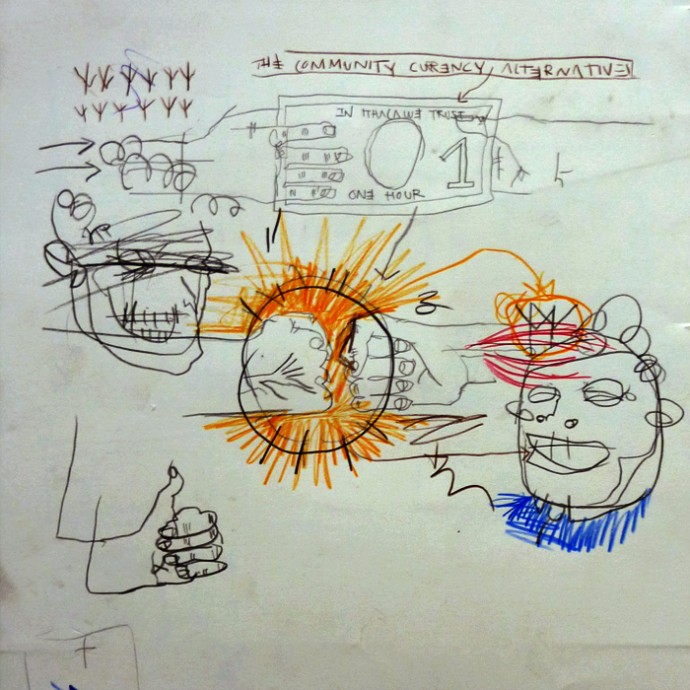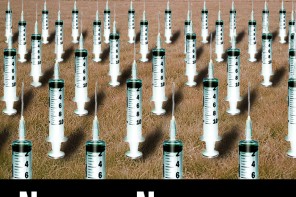Frustrated by the lack of local control over money within your community? Or, for that matter, what can be done when there simply isn’t enough of it? The answer may be surprisingly simple: Print your own! Paul Glover, 66, is a life-long community organizer and social entrepreneur from Ithaca, New York. Over the past forty years, he has authored six books, been a professor of Urban Studies at Temple University, and assisted with the creation of no fewer than eighteen organizations and campaigns dedicated to ecological and social justice. In 1991, he pioneered the establishment of an alternative form of money within his hometown called the Ithaca HOUR. He shares the story of this radical venture, as well as why he thinks the creation of such local currencies can be a powerful tool for ecological sustainability and community empowerment.
I’ve long been enthusiastic about our abilities to enact democracy on the local level and skeptical of the willingness and capability of the government or Wall Street to serve our needs and best values. I realized that there were many wonderful things that Americans could do or were already doing, but that money, itself, was moving in the wrong direction. National currencies have overwhelmingly served national and global greed, as well as financed wars and the destruction of nature and communities.
Therefore, during the great recession of the early nineties, I concluded that if we were going to be able to have enough money within our locality and, more importantly, if we were going to be able to do good things with it, we needed to print our own. While it would have been easy to create a local currency dedicated only to making people more effectively voracious consumers, we were instead determined to foster those elements of the local economy that replenish nature at least as fast as it is consumed.
All currencies are based upon extraction from nature and, therefore, indebted to it. As a result, all national currencies will continue to circle the drain so long as they are based upon an ecologically unsustainable model, or one that takes from nature without giving back. The only healthy currency for a healthy economy and world is one controlled by people who are dedicated to maintaining ecological economies. We wanted to enact a working model of this very philosophy on a local level.
In addition to our environmental aspirations, our goal was to encourage more trust, mutual reliance, and cooperation. In other words, we wanted to strengthen our collective sense of community. To do this, we sought to intensify trading within the community, support local businesses, encourage loans, and control interest rates. We wanted an alternative to the marketplace that is an electronic abstraction trading digits at the speed of light where people are mere winners and losers scrambling for dollars. Instead, our intent was to cultivate and enjoy our humanity within the marketplace of an actual, geographical location where people could become friends, political allies, and lovers.
When considering what would back our local currency, it occurred to me that not only did we not have gold or silver, but neither does the Federal Reserve. The dollar is backed by rusting industry and trillions of its kind in national debt that can never be repaid. Money backed by hours, by contrast, would be as steady and solid as the clock. Ithaca’s HOURS, moreover, are backed by thousands of solid and specific and tangible goods and services. For this reason, we actually began referring to our currency as ‘real money’ and to the dollar as ‘funny money’.
We decided that one Ithaca HOUR would be equal to one hour of basic labor or ten dollars. Once we began circulating them, we effectively doubled the minimum wage in our community. Furthermore, with the support of this alternative framework, we encouraged and enabled participants to negotiate the relative value of one another’s hourly labor, and also inspired many professionals to lower their hourly fees in the spirit of equity.
As a longtime resident of Ithaca, I knew that there were hundreds of local businesses owned by creative, progressive people who enthusiastically contributed to a wide variety of local non-profit initiatives and were, therefore, likely to to take part in this experiment. Because I had a background in graphic design, journalism, and arrogance, I designed the prototype money on my home computer, printed a stack of copies, and walked through town with a clipboard. I waved the bills at people, and said “This is going to be money and we’ll trade it with one another. Sign up here.”
After only a few months, I had published and circulated the first edition of a city-wide newspaper that featured an explanation of the Ithaca HOUR system, the names of the first ninety pioneer participants, and an invitation to others to join. Within a very short time thousands more had agreed to accept the money, including five hundred local businesses. Food vendors comprised the largest category, but there were also clothing retailers, movie theaters, bowling alleys, health clubs, restaurants, and even landlords.
When we started, I had assumed that what we were doing was illegal. To be honest, this was part of the fun. However, when the media began contacting the Internal Revenue Service, the Secret Service, the Treasury Department, and the Federal Reserve Board, none of the agencies could find a law to prevent the printing and trading Ithaca HOURS. So long as our currency didn’t physically resemble dollars and was assigned a taxable dollar equivalency, we were free to do as we pleased.
At the time, our District Attorney was the most doggedly conservative person living in Ithaca. When confronted by the media about Ithaca HOURS, he not only gave us his support, but backed it with the full weight of his authority. He declared that counterfeiting of the currency would be classified as felony forgery and punishable by up to seven years in prison. Not only was their legal status upheld, but Ithaca HOURS were guaranteed the same legal protections as Federal currency!
In the years since our money was first issued, millions of dollars of it have transacted. Furthermore, because Ithaca HOURS cannot be spent or invested outside the community, the wealth they have generated has stayed within the city. We also made progress with regards to our ecological aims. Many loans have been made to local environmentally conscious non-profits, including an organic farm. Yet, the greatest value of the money has been its ability to bring people together. The credit for this is extensively due to the people of Ithaca. As individuals and business owners, they have shown their enthusiasm for creating a better world.
Ithaca HOURS have had a broad reach. Though the project may have begun within my base of hyperactive old hippies, it quickly spread throughout the community because of its recognition as a practical tool. Even the most religious or politically conservative residents of Ithaca have embraced it for their own reasons, and often due to their own deep-seated mistrust of the Federal Reserve. The desire for localized control of money and investment really knows no cultural or political boundaries. Perhaps the greatest benefit of the currency has been its ability to bring different groups of people together that may otherwise never have collaborated. This was also the most personally satisfying aspect of my involvement.
Since its inception, members of the Ithaca HOURS project have been asked by people all over the world to visit their communities and speak about the capabilities of local currency. Often, local currency has been embraced where conditions are most dreadful but residents have been, nonetheless, willing to take a stand. During the collapse of the Argentine economy in the nineties, for example, several hundred local currencies helped two million people through very hard times. At one point, when the Chinese government was about to enter into the World Trade Organization, it sent a delegation to Ithaca to research and report on our example. They were concerned about connecting their own economy to one dependant upon the dollar. Within a few months, hour-denominated local currencies were established throughout China.
The Ithaca HOURS project also helped to inspire over ninety other similarly organized and operated local currencies within the United States. There was a time when there were communities all over the nation following our example. Of those currencies that originally arose, a handful of places remain where they are still in use, including Madison, Berkeley, and Baltimore.
There have definitely been challenges. First and foremost, facilitating and troubleshooting the actual circulation of the Ithaca HOUR has been a huge task. Just as any national currency has an army of brokers encouraging and manipulating its spending and investing, a local one needs at least one full-time Networker. Although every local currency is created by enthusiastic volunteers, after a year or two they often realize that they’ve started a project exceeding their managerial capabilities. Even the Ithaca HOURS project has gradually decreased in scale over the years.
Nonetheless, the Ithaca HOURS project can be revived, just like any other local currency that has seen a decline in recent years. The need for local currencies is now even greater than it was when we started twenty-three years ago. With hard work and renewed purpose, existing local currencies be restored to, and even exceed, their peak use and influence. Furthermore, new ones can arise. In order to help jump-start this movement, I’ve drafted plans for the issuance of a national HOUR-denominated currency that would help stimulate the formation of, and intertrade between, community currencies within the United States.
The future of local currency will be a marriage of our needs and our creativity. It will take familiar, or even new and exciting, forms. In the United States, many are bogged down in ideological trenches. However, when we begin to address real needs in immediately practical ways on the basis of democracy, ecology, and community, the widest variety of people will put aside their differences, roll up their sleeves, and build together. I believe that a local currency is an effective example of this notion, and I’m eager to encourage and consult with anyone interested in preparing a secure and abundant future for themselves and their communities.







